Through Night of Too Many Stars, NEXT for AUTISM proudly funds grantees whose programs improve the lives of people with ASD across the country. When we have the opportunity to pair two grantees, thereby enhancing each program, we feel even greater satisfaction. Not only does each grantee benefit from the collaboration, the field of autism services also gains from resulting innovations.
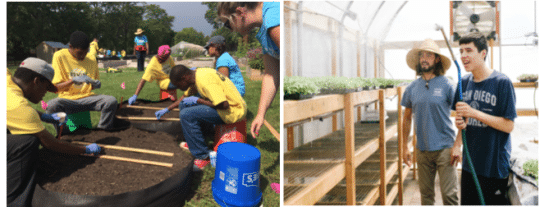
This was NEXT for AUTISM’s intention when we introduced Growing Solutions Farm (GSF) on Chicago’s West Side to TERI Inc.’s Organic Agriculture Program in San Diego, California. Though distinct in scale and practice, the organizations share a common goal of enriching the lives of people with ASD and other developmental challenges through agriculture. GSF operates a one-acre parcel of land in Chicago, is ASD-focused, and applies rigor and order to its vocational training program. TERI has prime farmland, exemplary resources and clients who have a broad range of developmental disabilities. The partnership that NEXT for AUTISM facilitated involves the creation of a vocational training manual by GSF, as well as cross-organizational collaboration.
Growing Solutions Farm
Located next to a parking lot in the Illinois Medical District, GSF is a green oasis of raised beds, a greenhouse, a small orchard and a native plant area tended by up to thirty young adults with ASD. It is part of Urban Autism Solutions (formerly the Julie & Michael Tracy Foundation), an organization that focuses on residential, social and vocational initiatives for people on the autism spectrum. The farm is both efficient and effective; it is a model job-training program for ASD learners and maintains a level of professionalism that yields high outcomes. GSF’s success results from a winning combination: the real-world expertise of lead grower, Gwenne Godwin, and a deep understanding of autism from Urban Autism Solutions.
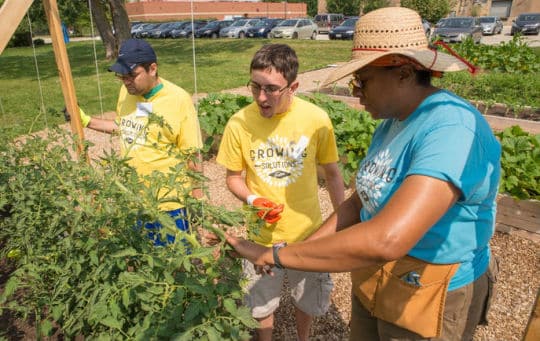
GSF’s physical organization is notably autism-friendly. Tools are clearly labeled and stored, with instructions prominently displayed to ensure that interns master their surroundings and can work fluidly and efficiently. The structured training program is also autism-specific, designed to instill a healthy work ethic and high employment outcomes. Interns assume assigned roles and follow strict routines. They are expected to learn fundamental work skills, such as following multi-step directions, sequencing tasks, collaborating, meeting goals, and managing their time. They also practice social skills that are challenging for people with ASD, such as asking for help, managing emotions, knowing when they need breaks, and building endurance. Not surprisingly, graduates of the program have gone on to jobs in landscaping, as well as retail, pet care and even film animation.
“We’re training entry level workers and we’re also creating employment,” says Julie Tracy, Executive Director of Urban Autism Solutions. “We teach a variety of skills, not only for growing food, but also in construction, composting, site maintenance and customer service through our produce stand. We challenge our interns, so that they can gain the necessary skills to become workers.”
Based on GSF’s success, NEXT for AUTISM provided a Night of Too Many Stars grant to the organization to write a vocational curriculum that could be shared with other organizations, the first of which is TERI in San Diego. NEXT for AUTISM also provided a grant to TERI to help facilitate implementation and training. TERI, with its expansive resources and large client base, seems poised to adopt and implement GSF’s curriculum.
Collaboration with TERI Inc.
TERI operates nine gardens in residential settings and three farms, the largest of which is two acres. Its agricultural program is part of a large facility that serves up to six hundred clients, some of whom work on the farms during weekly rotations supervised by the staff. They plant, harvest, wash and pack produce to distribute to TERI’s residences. Clients with and without ASD also tend farm beds at the residences. “We’ve mostly modeled instructions to clients,” Emily Field, Farm Manager, explained of TERI’s approach to training thus far. “We show them basic tasks and slowly move to complicated jobs. A goal for us is to help clients believe that the tasks are not as hard as they think. We want to get them comfortable, so that they can find joy in farming.”
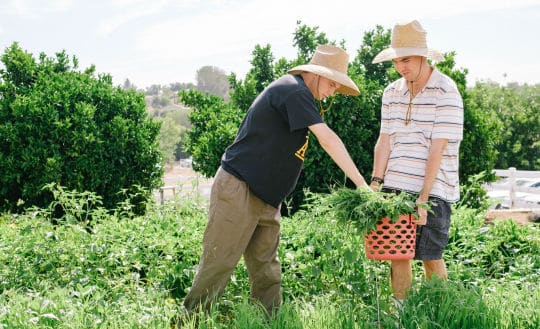
The TERI team plans to implement GSF’s training techniques and organize its workspace to help clients further succeed. The team also will teach the new methods to TERI’s staff, so that they can gain comfort with farming and eventually inspire clients to join in more consistently. On a recent visit to Chicago, Ms. Field and her colleague, Kelcie Cannon, witnessed first-hand GSF’s autism-specific techniques. “Growing Solutions does an amazing job at creating and reinforcing systems so that clients know exactly what to do without supervision,” remarks Ms. Field. “Their clients are really empowered and self-sufficient.”
From Chicago, Julie Tracy and Gwenne Godwin have provided TERI with GSF’s new farm manual, and on an earlier visit, began to discuss ways to implement GSF’s training systems. We, at NEXT for AUTISM, are optimistic that our matchmaking will create fertile ground for mutual growth throughout 2017. “This was all idea,” says Ms. Tracy, “they put us together, structured the relationship and made this possible. We’re all deeply grateful for leadership.”

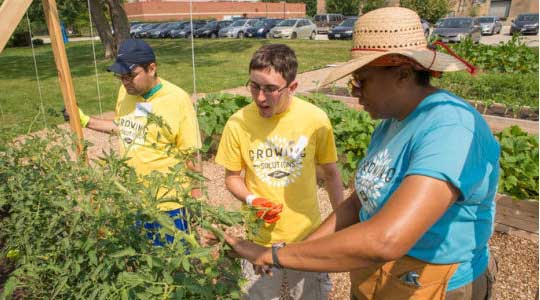
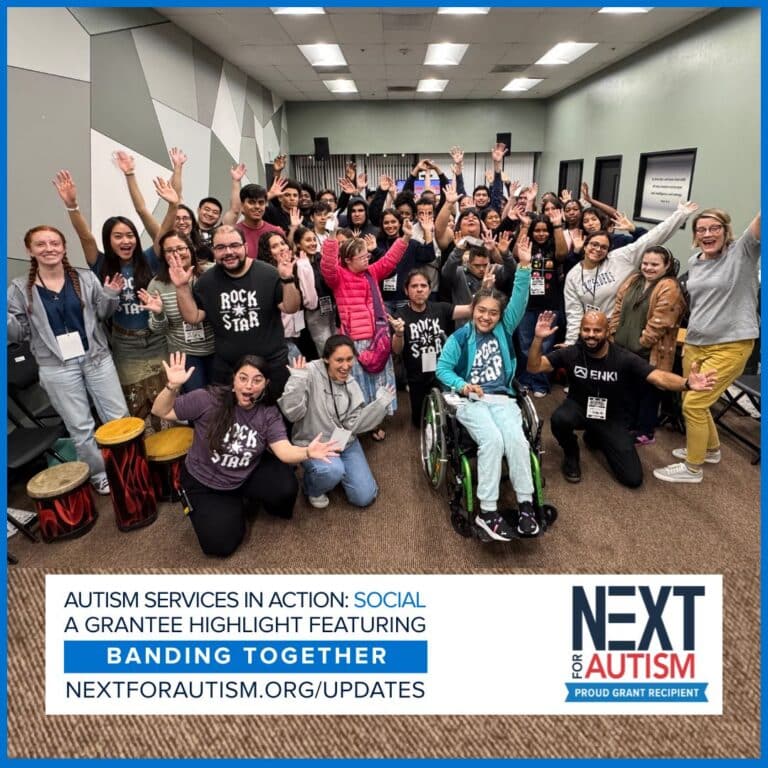
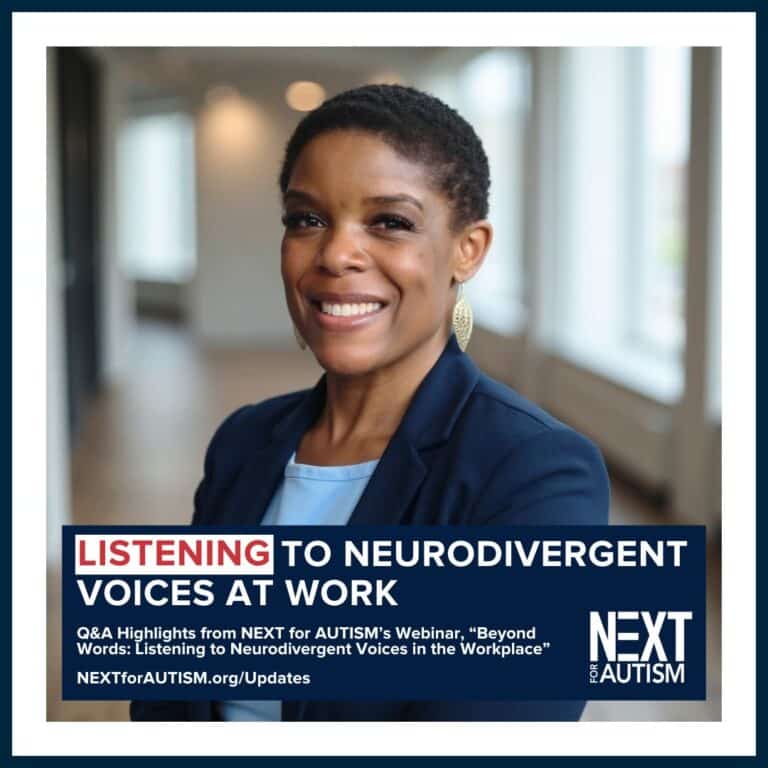
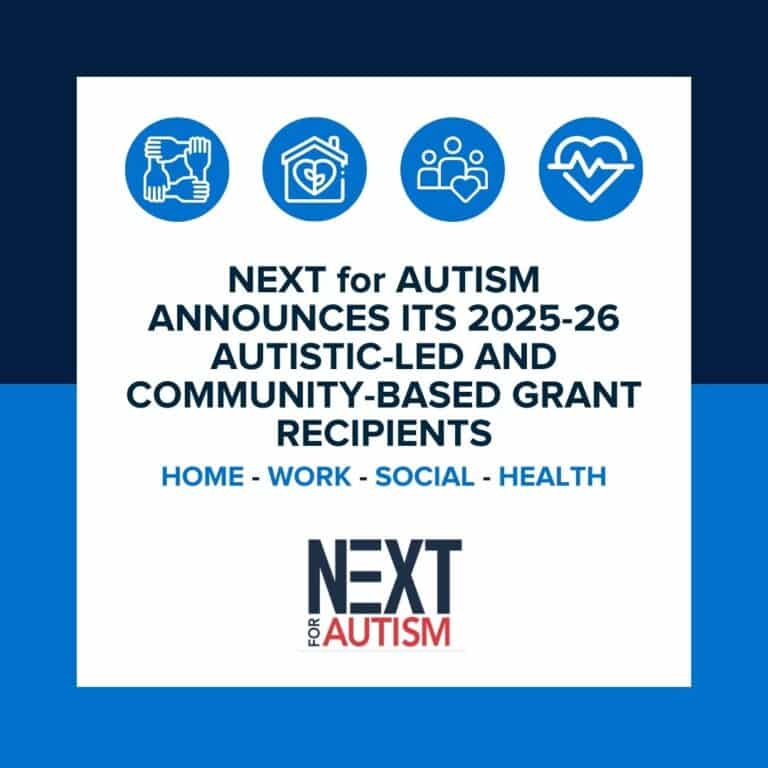

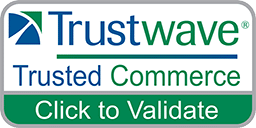
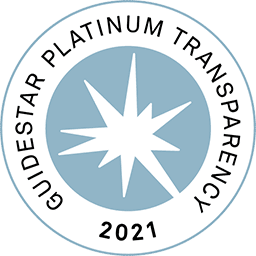
Leave a Reply